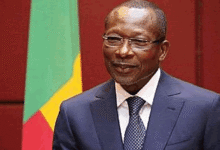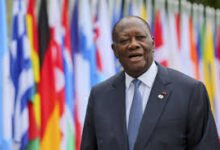World leaders urged to fight violence against women, young girls

First Lady of Rwanda, Mrs Jeanette Kagame, has called on world leaders to share the responsibility of fighting all forms of violence against women and young girls.
According to her, if crisis of vulnerable people were globally shared, such occurrences would drastically reduce to make the world safer for women and children.
“In times where the world is already weakened by devastative occurrences, who gains when women and girls who make up more than half of the population of communities worldwide are disempowered and victimised?” she quizzed.
Mrs Kagame made the call at the Global Crisis plenary session of the ongoing Women Deliver (WD) conference in Kigali, Rwanda.
She stated that in the event of disaster or other global disruptions, a person’s gender, origin, race, health status and financial strength would determine the extent of misfortune the individual experiences.
She therefore underscored the need for all persons with the power to effect change to ensure they do not pretend to bear no influence over who gets to suffer the least and who must endure the most.
“Are we really that apathetic to the fate of women and girls that we wish to consider gender equality to be solely a female issue as opposed to a moral human issue? We do not have the luxury of time considering our current pace.”
“We need to as a matter of urgency find the integrity and perhaps bravery to address core questions that loom over women’s fates and deploy the diverse range of resources available to us to design sustainable solutions,’ she added.
Referring to the World Bank report that estimates the loss in human capital wealth due to gender inequality to be at least $160.2 trillion or twice the global Gross Domestic Product (GDP), she indicated that it would take much less to develop self-reliant systems for female empowerment and achieve gender equality at last.
The Global Fund, a worldwide movement to defeat HIV, tuberculosis and malaria to ensure a healthier and more equitable future for all, she said, had been a very strong partner to Rwanda and to non-profit organisations such as Imbuto Foundation which she chaired, adding that Rwanda had secured remarkable progress in the health status of communities in the country, leading to a reduction in rates of HIV infections.
Mrs Kagame also revealed that mother to child transmissions of HIV in Rwanda has been almost nonexistent for many years, “to all that fought to get us here we say thank you.”
Meanwhile some participants of the conference in separate interviews with the Ghanaian Times commended the organising team for the initiative and called for more actions to be taken to address all issues affecting women and young girls.
Evelyn Mukundihi from Uganda said “This has been a very valuable experience for me and I am hoping that we will all put into actions whatever we learned or talked about during the programme to achieve our aims of promoting gender parity and protecting women.
Shakira Nuhu, an adolescent girls protection advocate from Ghana urged young girls to become advocates for themselves and demand accountability from decision making leaders.
FROM RAISSA SAMBOU, KIGALI, RWANDA







